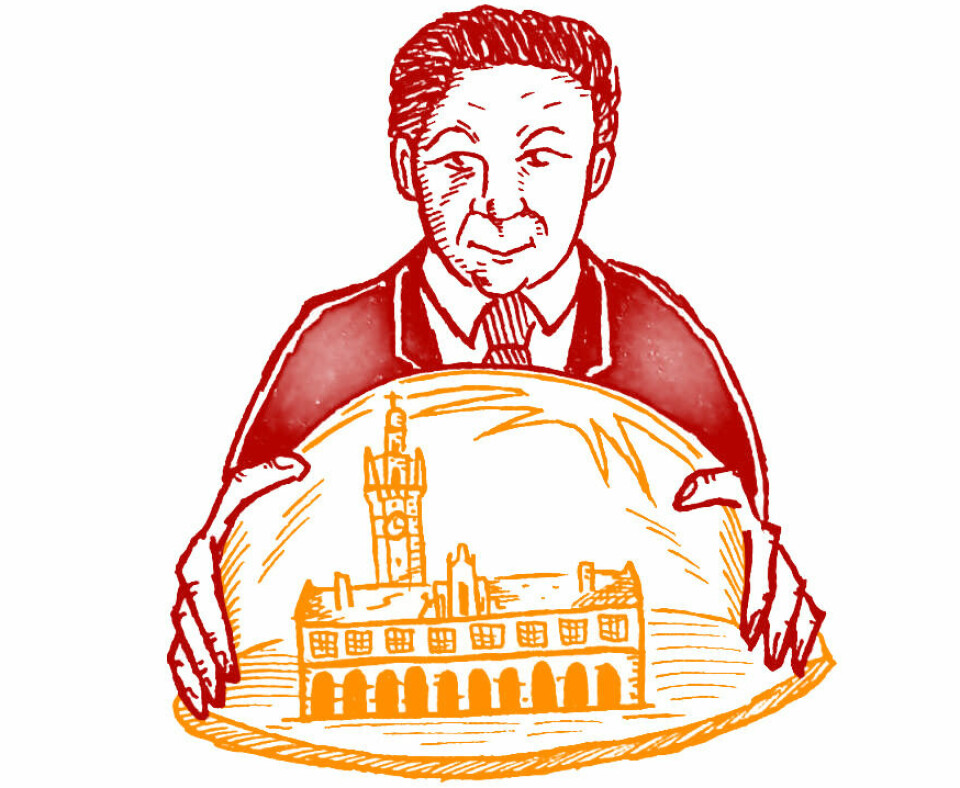ANALYSIS CHINA
Collaborating with Chinese partners poses its challenges: 'The word "propaganda" had to be replaced'

Despite ongoing warnings about Chinese espionage from various quarters such as the media, state security, and the federal government, KU Leuven remains steadfast in fostering new partnerships with leading Chinese universities. How do academic staff themselves experience these collaborations?
According to Peter Lievens, KU Leuven’s vice-rector of International Policy, China’s growing prominence in academia cannot be disregarded. '‘However, knowledge security must remain guaranteed, and we stick to our values when entering into collaborations,'’ he says.
That is why the university has set up the ethics committee dual use, military use and misuse of research. They assess whether new research agreements are justified, and also have the power to stop a collaboration.
Control to some extent
Professor Reine Meylaert, vice-rector of Human Sciences, notes that while some studies face rejection, many proceed without issue. For instance, she herself has collaborated with Beihang University, a member of the notorious Seven Sons of National Defence Universities, in the past. These institutions are contentious due to their strong connections with the Chinese military and government, as well as their involvement in overseas espionage activities.
'Unlike in a democracy, those in power in an authoritarian regime are not representatives of the citizens. That should be an argument for a scientist not to simply coincide with such a regime.'
Reine Meylarts, vice-rector of Human Sciences
In 2020, media outlets strongly emphasized the risks associated with collaborations involving these universities, prompting KU Leuven to address the concerns in De Morgen and backtrack on its previous actions. Nevertheless, several more individual collaborations have taken place between researchers after that statement.
As the new calendar year began, the federal government implemented a funding ban on collaborations with these seven universities. Lievens stresses that this does not necessarily mean that individual collaborations can no longer take place. 'After all, in certain disciplines, the risk of intellectual property theft is more acute than in others', he asserts.
Pleasant, inclusive and important
Certainly, the professor’s experiences reveal that not all collaborations with Chinese researchers are the same. For instance, Meylaert expresses her enjoyment in working with Chinese researchers, while acknowledging their tendency to be less critical.
Moreover, the vice-rector considers it unwise to lump all collaborations in China together. 'Unlike in a democracy, those in power in an authoritarian regime are not representatives of the citizens. That should be an argument for a scientist not to simply be coincided with such a regime by his or her colleagues.'
'In my research, I am critical: sometimes it happens that I have to change the title of my lecture'
Carine Defoort, professor Chinese studies
Lecturer in Literature Lut Lams, who researches Chinese discourse, also notes the value of having research partners who speak the mother tongue. 'It is always enriching to hear another voice,' she adds.
Lievens agrees, stressing: 'A certain amount of caution is understandable, but precisely because of the different cultures, we can learn a lot from each other through research collaboration and exchange. It offers an ideal opportunity to share our values.'
Geopolitics determines cooperation
Sinologist Carine Defoort stresses the importance of cooperation to maintain a deeper understanding of China. ‘Think about the climate issue, for example,’ she explains. ‘China plays a crucial role in this. If we don’t speak the language and understand their way of thinking, we can never tackle it together.’ That is why she is positive that Europe is not significantly reducing the funds it accepts and disburses for collaborations with China.

That trend prevails more strongly in America, according to Defoort, from a geopolitical standpoint. 'China is an economic and ideological threat to America,' says Defoort. That is why they emphasise Chinese spying practices and try to avoid collaborations. 'Important to mention in this regard is that the United States, of course, spies itself.'
'You have Chinese partners who seem to be stuck in their ideological pattern of thinking'
Reine Meylaerts, vice-rector Human Sciences
Yet some top US universities also stress the importance of cooperation with China. For example, the Times recently published an article in which the president of Ivy League University Brown argued that Chinese knowledge adds considerable value in academic research on diseases and economic developments, for example.
Difficulties and threats
Despite the fruitful developments the collaborations produce, they also have a downside, which cannot be separated from the political context. China of course has an authoritarian regime in which there is censorship. As recently as 2020, for instance, China passed the National Security Law for Hong Kong.
Exactly what it contains is secret. What is clear, however, is that under the security law, Chinese people can face life in prison for 'secession', 'subversion', 'terrorism' and 'colluding covertly with foreign forces'. 'Partly because of this, there is a fear among Chinese researchers of being critical of their own regime', Lams says.
According to Lams, this fear is less pronounced among Chinese researchers living abroad, and staying there. 'Some are open to alternative sources but remain cautious while others are more open to hearing different voices.' According to Lams, it is easier to collaborate with the latter group, not to have to restrict themselves and be able to conduct the research in full independence.
The use of the word 'propaganda' has been abolished in China since 2023, and changed to 'national publicity'
'You also have Chinese partners who seem stuck in their ideological frame of mind and, in line with the discourse of the state apparatus, advocate an alternative vision of the world order,' Lams says. That group fits into the picture of what the Chinese government expects from Chinese spokespeople, media, and academics: 'Tell China’s story well.'
This means that China wants to tell China’s story in a recruiting way so that it comes across well to the rest of the world. Lams explains that this can make it difficult to work with Chinese researchers.
For example, some researchers do not want to use the word propaganda in academic texts. The use of that term has been abolished in China since 2023 and changed to the term 'national publicity'.
‘Remove this: not a good picture of China’
Other examples exist: 'I saw a PhD by a Chinese researcher examining the Chinese discourse on the climate issue,' says Lams. It was mainly a positive story without any criticism of China as a polluter.
'I also once received a comment from a Chinese editor-in-chief to an academic article that mentioned that Chinese media are expected to play an educational role: "Remove this, this does not benefit China’s image."'
Defoort also says he has encountered difficulties. 'In my research, I am critical and aim to question clichés; sometimes it happens that I have to change the title of my lecture.'
Despite different experiences with Chinese researchers, one thing is beyond doubt: 'Possible espionage is always in the back of your mind. But that does not only apply to collaborations with Chinese universities,' says Lievens. He concludes: 'It is important at all times to remain vigilant in collaborations with foreign universities.'









